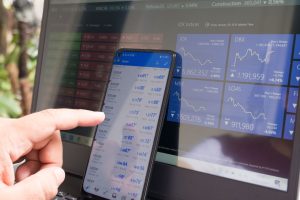Forex trading, also known as foreign exchange trading, is the process of buying and selling currencies on the foreign exchange market. As with any financial transaction, there are fees associated with forex trading. In this article, we will explore the fees that traders can expect to encounter when trading forex.
Spread
The spread is the difference between the bid price and the ask price of a currency pair. The bid price is the price at which a trader can sell a currency pair, while the ask price is the price at which a trader can buy a currency pair. The spread represents the cost of the transaction and is usually expressed in pips.
For example, if the bid price of a currency pair is 1.2000 and the ask price is 1.2005, the spread is 5 pips. The spread can vary depending on the currency pair being traded and the broker being used. It is important to note that the spread is a variable cost and can fluctuate depending on market conditions.
Commission
Some forex brokers charge a commission on each trade. The commission is a fixed fee that is charged per lot (a lot is a standardized unit of currency). Commission fees vary depending on the broker and the type of account being used. For example, a broker may charge $5 per lot for a standard account and $10 per lot for a premium account.
It is important to note that commission fees are in addition to the spread. Traders should factor in both the spread and commission fees when calculating the cost of each trade.
Swap
A swap is a fee that is charged for holding a position overnight. The fee is based on the interest rate differential between the two currencies in the currency pair being traded. The swap fee can be positive or negative depending on the direction of the trade and the interest rate differential.
For example, if a trader buys a currency pair with a higher interest rate than the currency they are selling, they will receive a positive swap fee. Conversely, if a trader sells a currency pair with a higher interest rate than the currency they are buying, they will pay a negative swap fee.
The swap fee is usually expressed in pips and is added or subtracted from the trader’s account at the end of each trading day. It is important to note that some brokers may also charge an administration fee for holding a position overnight.
Inactivity fee
Some brokers may charge an inactivity fee if a trader does not use their account for a certain period of time. The fee is usually a fixed amount and is charged monthly or annually. Inactivity fees vary depending on the broker and the type of account being used.
Traders should be aware of inactivity fees and the terms and conditions associated with them. Some brokers may waive the fee if the trader makes a certain number of trades or maintains a minimum account balance.
Conclusion
Forex trading fees can vary depending on the broker and the type of account being used. Traders should be aware of the fees associated with forex trading and factor them into their trading strategy. The spread, commission, swap, and inactivity fees are the most common fees associated with forex trading. By understanding these fees, traders can make informed decisions and minimize their trading costs.





